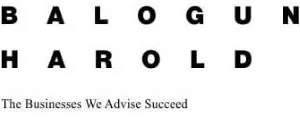- within Tax topic(s)
- with readers working within the Securities & Investment industries
- within Tax, Consumer Protection and Technology topic(s)
As a general rule of Nigerian tax law, if a foreign company has a Nigerian permanent establishment, then the profits of that foreign company that are attributable to that permanent establishment, either directly or indirectly, are chargeable to Nigerian tax. Given the tax implications of a permanent establishment and the potential for prosecution in the event of non-compliance, it is often important to determine whether a Nigerian permanent establishment is created by a foreign company carrying out some business Nigeria, ideally before the business commences.
A permanent establishment is defined by Nigerian legislation as where:
- A foreign company has a fixed base of business in Nigeria to the extent that the profit is attributable to the fixed base. The phrase “fixed base” is not statutorily defined. However Nigerian courts ( per the case of Shell vs FBIR Maatschppij B.V.) have defined “fixed base” to connote “residence” or “ordinary residence” in terms of a place where a company has carried on its business over a long period of time notwithstanding that it is not the owner of the place. The current judicial thinking in Nigeria is that ‘volition' is no longer a necessary factor used to construe the phrases “ordinarily resident” and “residence”. Based on the decision in this case, it is possible to reach the conclusion that an office, a place of management, a building site, a construction or installation project, a factory, a branch, a workshop, a mine, an oil&gas wells, a quary, or any other place of extraction of natural resources, will constitute a fixed base for the purpose of a permanent establishment determination. It is important to note that Nigerian legislation clearly provides that a fixed base shall not include facilities used solely for storage or display of goods or merchandise and collection of information.
- A foreign company, which does not have a fixed base in Nigeria, but habitually operates a trade or business through a person in Nigeria authorised to conduct on its behalf or on behalf of some other companies controlled by it or which have a controlling interest in it; or habitually maintains a stock of goods or merchandise in Nigeria from which deliveries are regularly made by a person on behalf of that foreign company, to the extent that the profit is attributable to the business or trade or activities carried on through that person.
- A foreign company, from outside Nigeria, transmits, emits or receives signals, sounds, messages, images or data of any kind by cable, radio, electromagnetic systems or any other electronic or wireless apparatus to Nigeria in respect of any activity, including electronic commerce, application store, high frequency trading, electronic data storage, online adverts, participative network platform, online payments and so on, to the extent that the company has significant economic presence in Nigeria and profit can be attributable to such activity.
- The trade or business or activities carried out by a foreign company in Nigeria involves a single contract for surveys, deliveries, installations or construction, the profit from that contract.
- The trade or business carried out by a foreign company comprises the furnishing of technical, management, consultancy or professional services outside of Nigeria to a person resident in Nigeria to the extent that the company has significant economic presence in Nigeria.
- The trade or business or activities carried out by a foreign company is between the company and another person controlled by it or which has a controlling interest in it and conditions are made or imposed between the company and such person in their commercial or financial relations which in the opinion of the FIRS is deemed to be artificial or fictitious, so much of the profit adjusted by the FIRS to reflect arm's length transaction.
The content of this article is intended to provide a general guide to the subject matter. Specialist advice should be sought about your specific circumstances.
[View Source]


